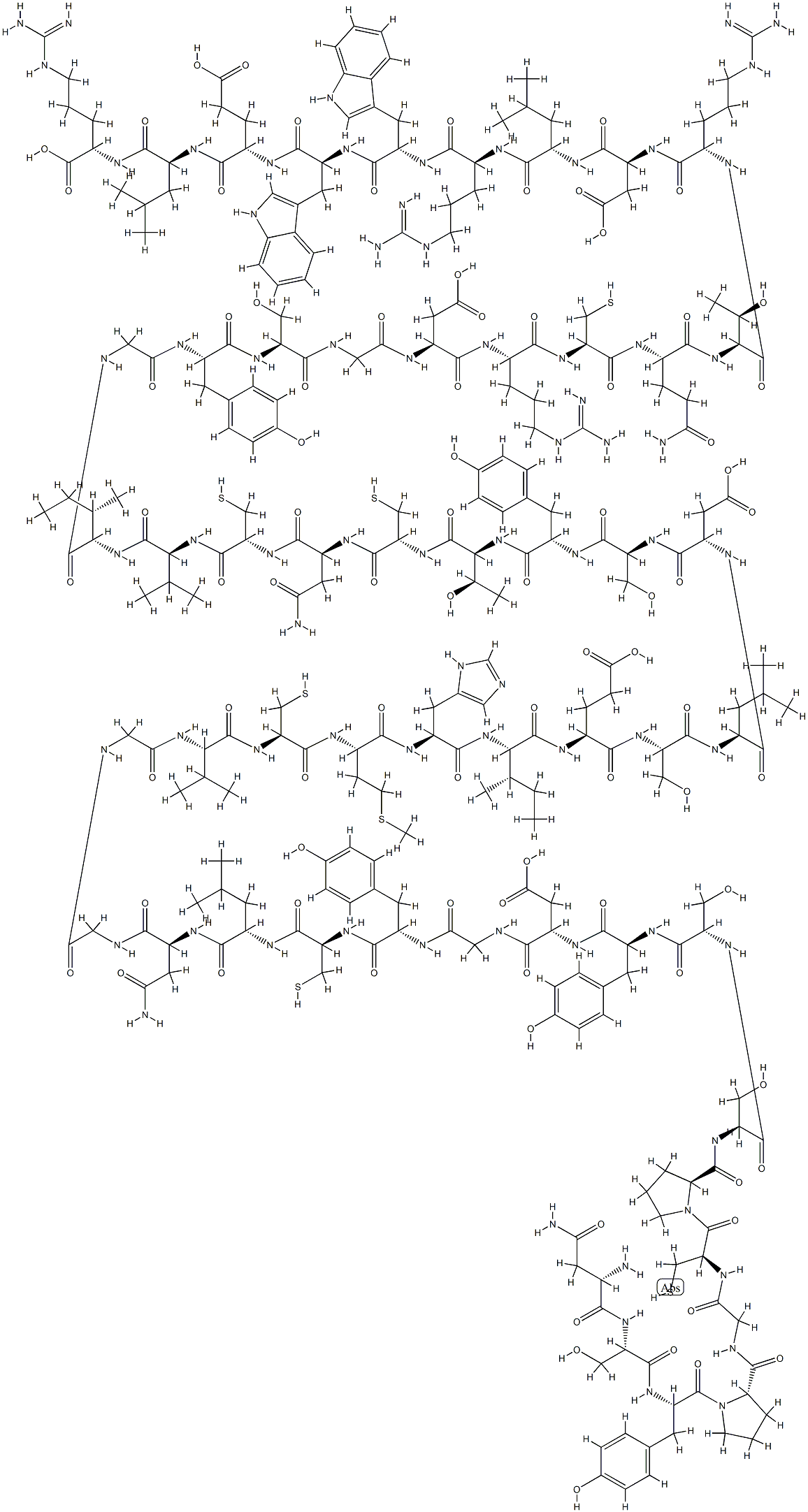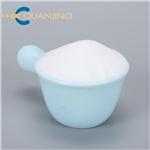Epidermal growth factor (EGF) is a polypeptide ligand for the EGF receptor (EGFR; ). It is synthesized as a 1,217 amino acid glycosylated transmembrane precursor protein from which mature, soluble EGF is formed by proteolysis. Mature EGF is a 53-amino acid polypeptide that contains six cysteine residues, which form three intramolecular disulfide bonds essential to the biological activity of EGF. EGF is synthesized in the brain, kidney, pancreas, small intestine, pituitary gland, and submaxillary gland and is found in various bodily fluids, including saliva, cerebrospinal fluid, blood, breast milk, and prostatic fluid. Binding of EGF to the EGFR induces receptor dimerization, autophosphorylation, and intracellular signaling with roles in cell proliferation. In patients with early Parkinson’s disease and Alzheimer’s disease with amnestic mild cognitive impairment, low plasma EGF levels are predictive of future long-term cognitive decline. Plasma levels of EGF are reduced in pregnant woman infected with T. cruzi compared with uninfected pregnant controls. Exogenous application of EGF normalizes cortical GABAergic transmission and improves rotarod performance in the R6/2 transgenic mouse model of Huntington''s disease. Probiotic administration of E. coli engineered to secrete human EGF induces epithelial barrier restoration in a mouse model of intestinal ulcers. Immunization with human EGF induces an anti-EGF antibody response and increased survival in mice with EGFR-expressing tumors. Cayman''s EGF (human, recombinant) protein can be used for cell-based assay applications. This protein consists of 54 amino acids and has a calculated molecular mass of 6.3 kDa.
Epidermal Growth Factor (EGF) from murine submaxillary gland has been used as a mitogen, triggering the cell to commence mitosis, in a variety of cell lines. In tissue cultures, EGF acts to reduce or eliminate the requirement for serum and can be used in conjunction with other media additives and hormone. The working concentration for EGF is generally 0.1-10 ng/mL.
EGF (epidermal growth factor) is a potent growth factor that stimulates the proliferation of various epidermal and epithelial cells. Recombinant murine EGF is a 6kDa globular protein containing 53 amino acid residues, including 3 intramolecular disulfide-bonds.
EGF (epidermal growth factor) has been shown to inhibit gastric secretion, and to be involved in wound healing. EGF signals through a receptor known as c-erbB, which is a class I tyrosine kinase receptor. This receptor also binds with TGF (transforming growth factor)-α and VGF (vaccinia virus growth factor). EGF plays an important role in embryogenesis and cardiogenesis.


